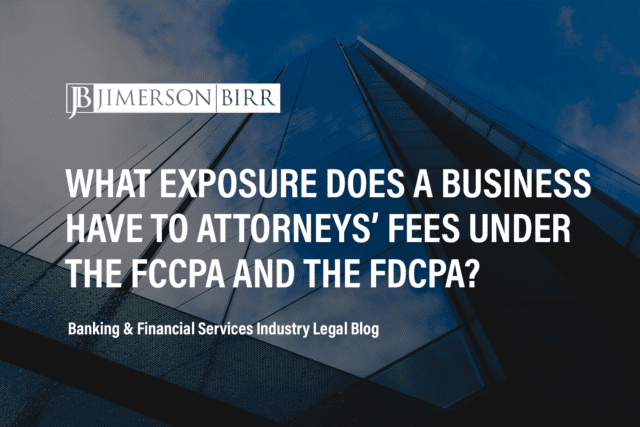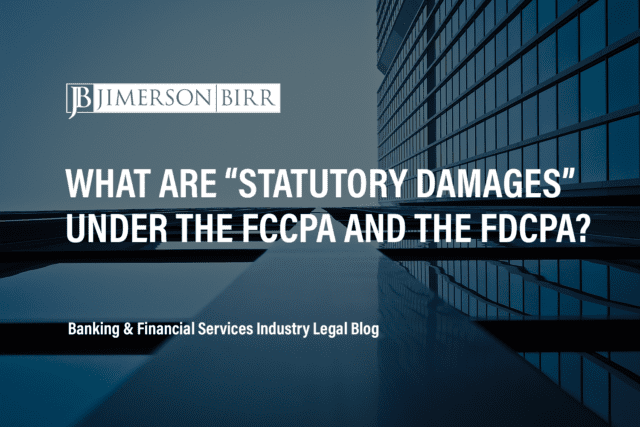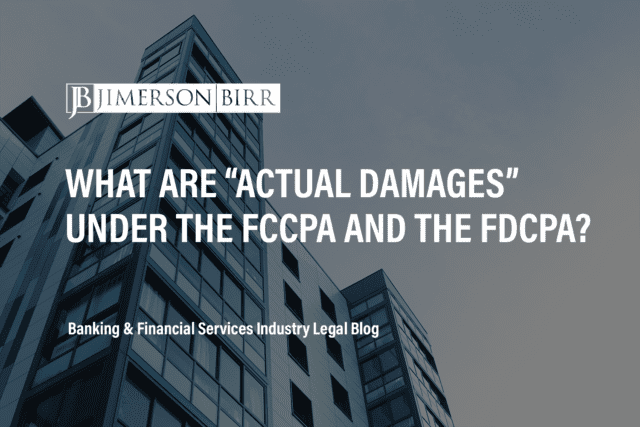In Florida, which laws and regulations apply to FCCPA violations?
Florida’s Consumer Collection Practices Act (FCCPA) is governed by Florida Statute § 559.55-559.785, with Section 559.72 laying out prohibited practices. This state law mirrors the federal Fair Debt Collection Practices Act (FDCPA). These federal and state laws aim to protect consumers from abusive, deceptive, and unfair debt collection practices.
The Federal Trade Commission (FTC) enforces the FDCPA, while the Florida Department of Agriculture and Consumer Services (FDACS) enforces the FCCPA.
Need help regarding FCCPA defense litigation? Schedule your consultation today with a top FCCPA defense litigation attorney.
What are common violations of the FCCPA that lead to litigation?
The following issues commonly lead to FCCPA litigation:
- Harassment or abuse: Creditors use oppressive, abusive, or offensive language or tactics to collect debts.
- Misrepresentation: Creditors present false information or make misleading statements to coerce payment.
- Unfair practices: Creditors employ unjust or unconscionable means to collect debts, such as attempting to collect unauthorized fees.
- Improper communication: Creditors disclose or discuss consumer debts with unauthorized third parties.
- Failing to validate debt: Creditors neglect to provide written debt validation upon the debtor’s request.
When a set of facts is appropriate for FCCPA defense litigation, there are many paths a claimant may take. We are value-based attorneys at Jimerson Birr, which means we look at each action with our clients from the point of view of costs and benefits while reducing liability. Then, based on our client’s objectives, we chart a path to seek appropriate remedies.
To determine whether your unique situation may necessitate litigation, please contact our office to set up your initial consultation.
What elements must a plaintiff prove for an FCCPA violation, and what are common legal defenses?
Generally, to establish an FCCPA violation, a plaintiff must prove that:
- The defendant is a debt collector or creditor;
- The plaintiff is a consumer;
- The defendant engaged in unlawful debt collection practices; and
- The plaintiff suffered actual damages as a result of the defendant’s conduct.
Common legal defenses against FCCPA claims include:
- Statute of limitations: Asserting that the plaintiff’s claim is time-barred because it was filed after the statutory limitation period.
- Bona fide error: Arguing that the alleged violation resulted from an unintentional mistake and that the defendant maintained reasonable procedures to prevent such errors.
- Lack of standing: Challenging the plaintiff’s ability to bring the lawsuit, such as asserting that the plaintiff is not the proper party or does not have a sufficient connection to the debt.
- Dispute of facts: Contesting the accuracy of the plaintiff’s allegations or presenting evidence that the defendant’s actions did not violate the FCCPA.
Please contact our office to set up your initial consultation to see what actions or defenses may be available for your unique situation.
What are effective measures to minimize the risk of litigation?
Consider the following:
- Develop written policies and procedures: Create and implement clear guidelines that align with FCCPA requirements and Fair Debt Collection Practices Act (FDCPA) for debt collection practices.
- Train employees: Regularly train and educate employees about FCCPA, FDCPA, and other relevant regulations, emphasizing proper communication with consumers and ethical debt collection practices.
- Document communications: Maintain detailed records of all consumer interactions, including phone calls, emails, and letters, to demonstrate compliance with the law.
- Validate debts: Ensure accurate and complete documentation of all debts and promptly respond to consumers’ requests for validation.
- Review third-party debt collectors: Monitor and assess any third-party debt collectors to ensure they adhere to the FCCPA and FDCPA.
Frequently Asked Questions
- Are FCCPA and FDCPA the same, or do they have different requirements?
While both the FCCPA and FDCPA regulate debt collection practices, they are not the same. The FCCPA is specific to Florida, while the FDCPA is federal law. There are similarities, but the FCCPA may provide additional protections for consumers. Therefore, it’s essential for debt collectors and creditors to comply with both sets of regulations.
- Can consumers file complaints against debt collectors for FCCPA violations?
Yes, consumers can file complaints with the Florida Office of Financial Regulation or the Consumer Financial Protection Bureau (CFPB) if they believe a debt collector has violated the FCCPA or FDCPA.
- What remedies are available to consumers for FCCPA violations?
If a consumer successfully proves an FCCPA violation, they may be entitled to actual damages, statutory damages up to $1,000, attorney’s fees, and court costs, as outlined in Florida Statute §559.77.
Have more questions about an FCCPA defense-related situation?
Crucially, this overview of FCCPA violations does not begin to cover all the laws implicated by this issue or the factors that may compel the application of such laws. Every case is unique, and the laws can produce different outcomes depending on the individual circumstances.
Jimerson Birr attorneys guide our clients to help make informed decisions while ensuring their rights are respected and protected. Our lawyers are highly trained and experienced in the nuances of the law, so they can accurately interpret statutes and case law and holistically prepare individuals or companies for their legal endeavors. Through this intense personal investment and advocacy, our lawyers will help resolve the issue’s complicated legal problems efficiently and effectively.
Having a Jimerson Birr attorney on your side means securing a team of seasoned, multi-dimensional, cross-functional legal professionals. Whether it is a transaction, an operational issue, a regulatory challenge, or a contested legal predicament that may require court intervention, we remain tireless advocates at every step. Being a value-added law firm means putting the client at the forefront of everything we do. We use our experience to help our clients navigate even the most complex problems and come out the other side triumphant.
If you want to understand your case, the merits of your claim or defense, potential monetary awards, or the amount of exposure you face, you should speak with a qualified Jimerson Birr lawyer. Our experienced team of attorneys is here to help. Call Jimerson Birr at (904) 389-0050 or use the contact form to schedule a consultation.

We live by our 7 Superior Service Commitments
- Conferring Client-Defined Value
- Efficient and Cost-Effective
- Accessibility
- Delivering an Experience While Delivering Results
- Meaningful and Enduring Partnership
- Exceptional Communication Based Upon Listening
- Accountability to Goals











